Dysphagia (Swallowing Difficulties) in Babies and Kids

Dysphagia is a medical term that refers to a feeding or swallowing disorder. If your child is having difficulty swallowing food or experiences other problems while eating, it could be a sign of dysphagia. Although swallowing may seem like a simple, automatic action, it actually requires complex coordination between muscles and nerves. When this process is disrupted, it can cause feeding difficulties, poor weight gain, aspiration, and breathing problems. It’s important to recognise the signs early so doctors can provide the right treatment. Let’s first understand what dysphagia is, how it happens, how to identify dysphagia in infants & kids and what treatment options are available.
What Is Paediatric Dysphagia?
Paediatric dysphagia is a term used to refer to swallowing problems in toddlers or infants and children. Children with the condition find it difficult to swallow their food, and hence, may end up rejecting food (1).
What Causes Dysphagia in a Child?
Feeding a child is important not only to provide her with essential nutrition but also to create a strong bond between the child and her caregiver. However, at times, things may not go so smooth. If your child is having difficulty eating her meal and swallowing it down to her tiny tummy, then there is a high possibility that your child has dysphagia.
Swallowing consists of four different stages. A swallowing disorder may occur if something goes wrong at any point of those stages. To know the causes of dysphagia, first, you need to understand the four stages of swallowing.
Swallowing disorders occur when one or more of the following stages fail to work properly (2).
1. Oral Preparation Stage
At this stage, food is masticated (chewed) and is mixed with saliva to make it soft enough for the next stage. Medically, the chewed food at the first stage is regarded as a bolus or cohesive bolus.
2. Oral Transit Stage
The tongue starts to posteriorly send the bolus to the base of the tongue in the second stage.
3. Pharyngeal Stage
From the base of the tongue, the bolus starts its journey towards the entrance of oesophagus.
4. Oesophagal Stage
Upon clearing the first three stages, the cricopharyngeus muscle relaxes to welcome the bolus into the upper oesophagus, hereafter, through muscle contraction, the bolus further travels through the lower oesophagus sphincter to finally arrive at its stop, i.e., stomach.
Health Issues That Cause Swallowing Disorders in Children
There are various health issues which may be the cause of swallowing disorders in infants. Any problem related to the structural problem in the mouth, throat or oesophagus may be the culprit behind the infant swallowing disorder. Following are some commonly seen health issues which often leads to swallowing disorders in children (3) (4):
- Prematurity
- Large tongue
- Large tonsils
- Cleft lip
- Cleft palate
- Dental complications such as overbite
- Masses or tumours in the throat
- Gastroesophageal reflux disease (GERD)
- Oral sensitivity or irritation in the vocal cords
- Paralysis of vocal cords
- Developmental delays
- Neurological disorders such as cerebral palsy
- Head or neck cancer
- Genetic syndromes such as Down syndrome, Rett syndrome
- Medication side-effects such as lethargy, a decrease in appetite
Symptoms of Dysphagia in a Child
Knowing the symptoms of dysphagia in infants is quite helpful to seek medical care as soon as possible since infants can’t verbally communicate with you. Following are twelve common symptoms you can look for (5):
- Choking
- Coughing
- Trouble while chewing
- Gagging
- Chest congestion during or after feeding
- Frequent respiratory infection
- Frequent vomiting or your baby not swallowing milk
- Weight loss
- A sensation of food getting stuck in the throat
- Change in breathing pace while feeding
- Hoarse or wet sound while or after eating
- Colour change during or after feeding
Diagnosis of Childhood Dysphagia
Consult with your doctor if you suspect the swallowing difficulties in infants. Your doctor may recommend a blood test to verify if there’s an infection or the following tests to analyse her condition (6):
1. Endoscopy
This test involves the use of an endoscope (a thin and flexible tube with a camera and light at one end) to take a peek into the patient’s digestive tract. As a part of the process and for further analysis, the doctor might take tissue samples from the throat, oesophagus, and stomach.
2. Barium Swallow and Upper GI Series
This one requires your child to drink the small amounts of barium. This metallic chemical has a chalky texture, which brilliantly coats the internal organs, this helps doctors to get better X-rays.
3. Laryngoscopy
It involves placing a tube inside the patient’s throat after administering anaesthesia, to check whether there is a problem with the throat and larynx (7).
4. Oesophagal Manometry
Under this test, your doctor will administer a small tube with pressure gauge down your child’s mouth and into the oesophagus. With the help of the pressure gauge, doctors can measure the pressure in the oesophagus, which reveals how smoothly food moves through the patient’s oesophagus. For this test, sedative medication is administered (8).
Possible Complications
Dysphagia may lead to aspiration, a condition wherein food or liquid infiltrate the windpipe and lungs, consequently resulting in pneumonia, respiratory infections or other lung problems. Difficulty in swallowing may result in dehydration and malnutrition, hampering their development. Seeking the experts’ help will help you tackle the problem constructively (9).
How Is Dysphagia Treated in a Child?
Paediatric dysphagia treatment may vary depending on the nature and severity of the child’s problem. Following are some of the common treatment of paediatric dysphagia (6):
- Oral motor treatment: It involves coordination of lips, tongue, cheek and jaw muscles for optimal eating.
- Oral sensitivity: It involves providing therapy to reduce the oral sensitivity.
- Behavioural orientation: It focuses on decreasing behavioural resistance to eating or drinking.
- Suitable utensils: Use of suitable bottle and utensils to ensure maximum comfort to your little angel.
- Diet modification: By changing the texture and thickness of food and drinks. Keeping the food warm, since warm food plays a vital role in stimulating eating and swallowing which leads to quick digestion.
- Organised feeding time: An organised and set feeding time helps your child to overcome the initial irritability.
- No to spoon: Until the age of 4 months, avoid giving food to your baby with a spoon since, before that, she doesn’t have proper coordination to swallow food from a spoon.
- Play with food: Let them play with food, and get messy, it is helpful for children with oral aversion.
- GERD treatment: Children with GERD problems, usually, go through GERD treatment to overcome dysphagia.
- Soft toys: Chewing on safe soft toys is helpful for children with the oral aversion.
When to Call a Doctor?
Seek an expert’s advice without any delay if your child is facing a problem in swallowing her food and you notice any of the symptoms mentioned above.
Things to Remember
Here are some things to keep in mind if to care for a child with dysphagia:
- Dysphagia may occur suddenly, or it may be long-term.
- Don’t wait and get to your doctor right away if your child is having trouble swallowing.
- There’s no single treatment for dysphagia, treatment may vary depending on the condition, and severity of the problem.
- Chronic dysphagia may be a signal towards an underlying health issue.
- The experts team for treating dysphagia may include, nutritionist, speech therapist, psychologist, ENT, gastroenterologist, allergist, occupational therapist, and healthcare provider.
FAQs
1. Can dysphagia affect speech development?
Yes, because swallowing and speech use many of the same muscles and nerves, children with dysphagia may also experience delays or difficulties with speech.
2. Is dysphagia a lifelong condition?
Not always. Some children improve significantly with treatment and therapy, while others with underlying conditions may have long-term swallowing challenges.
3. Is dysphagia common in premature babies?
Yes, premature babies often have immature muscle coordination and weak sucking or swallowing reflexes, which can make them more likely to experience dysphagia.
Swallowing disorder in children should not be ignored. Do not try to deal with it on your own; seek medical help right away. Always seek a second opinion to ensure that you are getting the right treatment for your little one. Ensure that you follow an expert’s advice to provide a comfortable atmosphere and fast recovery for your child.
References/Resources:
1. Boston Children’s Hospital – Dysphagia in Children
2. National Library of Medicine – Physiology, Swallowing
3. NHS – Dysphagia (swallowing problems)
4. Cleveland Clinic – Dysphagia (Difficulty Swallowing)
5. Cedars-Sinai – Dysphagia in Children
6. Children’s Hospital of Philadelphia – Dysphagia
7. Cleveland Clinic – Laryngoscopy
8. Cleveland Clinic – Esophageal Manometry Test
9. Children’s Health Queensland – Swallowing difficulty (dysphagia) in children
Also Read:
Tay-Sachs Disease
Eating Disorders in Children
Brittle Bone Disease in Babies
Cerebral Palsy in Babies & Kids
Was This Article Helpful?
Parenting is a huge responsibility, for you as a caregiver, but also for us as a parenting content platform. We understand that and take our responsibility of creating credible content seriously. FirstCry Parenting articles are written and published only after extensive research using factually sound references to deliver quality content that is accurate, validated by experts, and completely reliable. To understand how we go about creating content that is credible, read our editorial policy here.










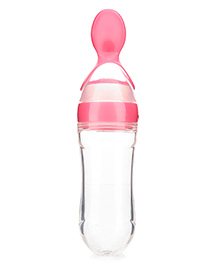


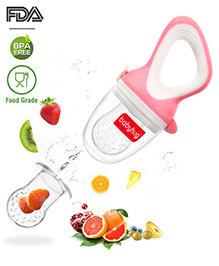

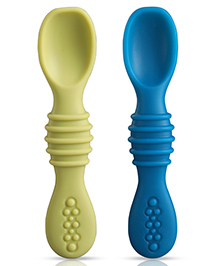
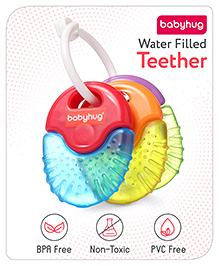
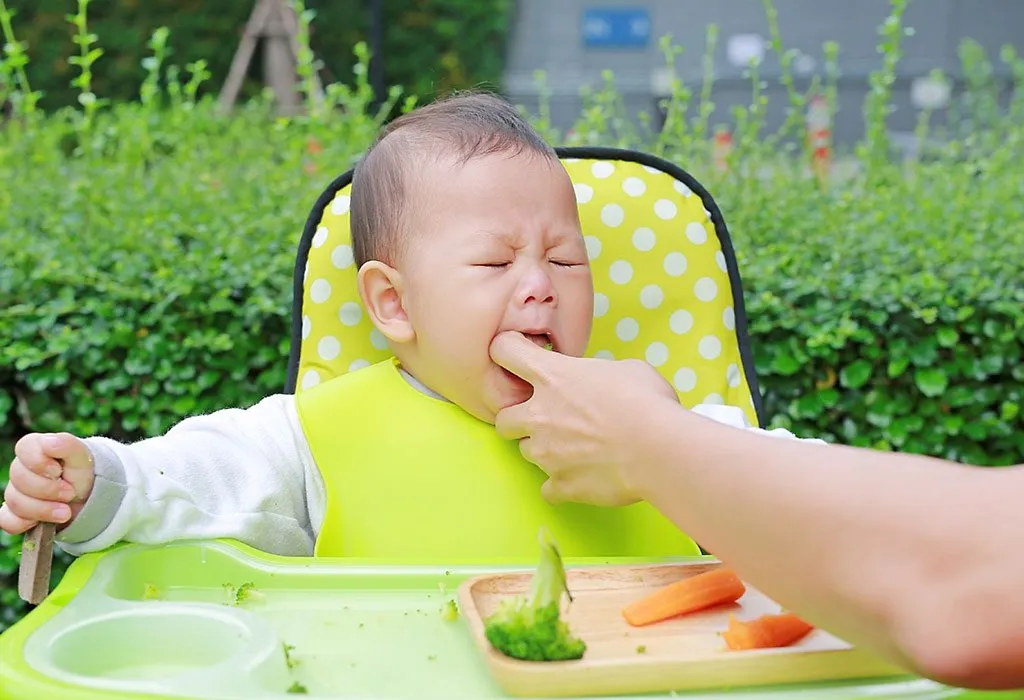

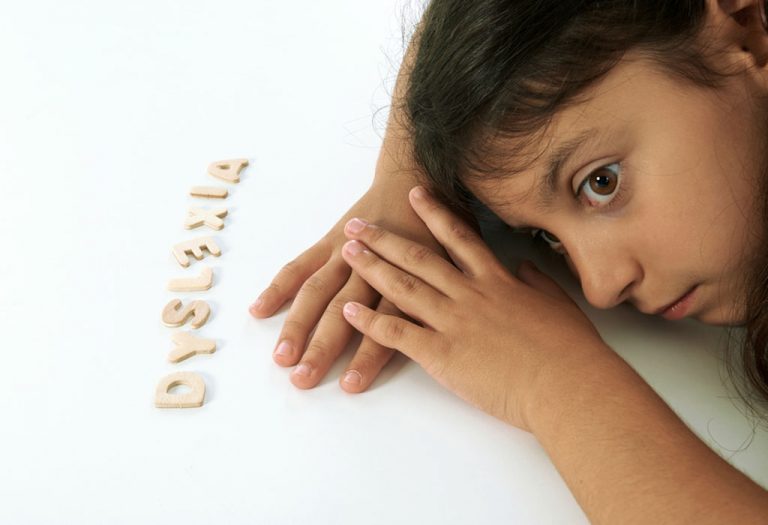





.svg)


















